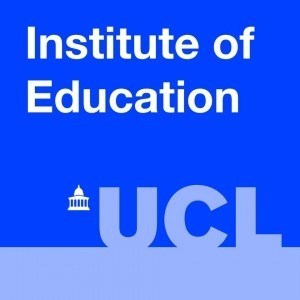Photos of university
The International Development program at the National University offers an comprehensive and interdisciplinary education designed to prepare students to address complex global challenges related to economic growth, social equity, environmental sustainability, and political stability in developing countries. This program integrates insights from economics, political science, sociology, environmental studies, and public policy, equipping students with a nuanced understanding of development processes and effective strategies for fostering sustainable progress worldwide. Throughout the course of study, students will explore themes such as poverty alleviation, health and education, governance, human rights, conflict resolution, and the impacts of globalization, gaining both theoretical knowledge and practical skills. The curriculum emphasizes critical thinking, analytical methods, and applied research, often involving case studies, fieldwork, and internships that connect students with real-world development initiatives. Students will have the opportunity to specialize in areas such as international aid, economic development, policy analysis, or humanitarian assistance, tailoring their education to their career interests. The program also encourages engagement with international organizations, NGOs, and government agencies, providing networking opportunities and experiential learning to enhance employability. Graduates of the International Development program will be well-positioned for careers in international development agencies, non-governmental organizations, research institutions, governmental bodies, or pursuing further academic research in related fields. With a focus on sustainable and ethical approaches to development, the program aims to foster responsible global citizens capable of contributing to positive change at local, national, and international levels. Drawing from the university’s strong faculty expertise and global connections, the program emphasizes innovative teaching methods, collaborative projects, and current issues facing the developing world, ensuring students graduate with a solid foundation and actionable skills to make a meaningful impact on global development challenges.
The International Development program at the National University is designed to equip students with a comprehensive understanding of the complex issues facing developing countries and the global community. The curriculum provides a multidisciplinary approach, combining insights from economics, political science, sociology, environmental studies, and public policy to prepare students for impactful careers in international organizations, NGOs, government agencies, and private sector initiatives focused on sustainable development.
Throughout the program, students will explore key topics such as poverty alleviation, health improvement, education enhancement, gender equality, good governance, and environmental sustainability. They will examine various development theories and models, analyze case studies from different regions, and learn to apply quantitative & qualitative research methods to assess development projects and policies. The program emphasizes critical thinking and ethical considerations, encouraging students to develop innovative solutions tailored to the diverse needs of communities worldwide.
Students will also benefit from practical experience through internships, fieldwork, and collaborative projects with international partners. The coursework includes modules on global trade, humanitarian aid, conflict resolution, migration, and technology's role in development. Emphasis is placed on understanding cultural, political, and economic contexts to ensure effective intervention design and implementation.
Faculty members comprise experienced academics and practitioners from international development fields, providing mentorship and insights into current challenges and opportunities. The program fosters a collaborative learning environment, encouraging teamwork, intercultural communication, and leadership skills.
Graduates of the International Development program will be well-prepared to analyze development issues critically, design sustainable projects, and contribute meaningfully to policies that promote social justice and economic growth. With a strong foundation in both theory and practice, students will be equipped to address global challenges and work towards a more equitable and sustainable world.
The Bachelor of Arts in International Development at the National University requires students to complete a comprehensive curriculum designed to prepare them for effective engagement in global development issues. The program mandates the completion of core courses in development theory, economics, political science, and sociology to provide a solid foundation in understanding the multifaceted nature of international development. Students must also undertake a series of elective courses that allow specialization in areas such as sustainable development, public policy, or international aid strategies. Practical experience is emphasized through mandatory internships or fieldwork components, enabling students to apply theoretical knowledge in real-world settings. The program includes language requirements to enhance cross-cultural communication skills, with options for coursework in additional languages relevant to development contexts. A capstone project or thesis is required, in which students conduct independent research on a development-related issue under faculty supervision. To graduate, students must accumulate a total of 120 credit hours, maintain a minimum GPA of 2.0, and demonstrate proficiency in at least one foreign language. The program also encourages participation in study abroad programs to gain international perspectives. Continuous assessment methods including exams, essays, presentations, and group projects are employed throughout the coursework. The curriculum is reviewed periodically to keep pace with evolving global development challenges and standards. Overall, the program aims to produce graduates capable of critically analyzing development problems, designing sustainable solutions, and effectively working in international development organizations, government agencies, or non-governmental organizations.
The financing of the International Development program at the National University is structured to provide accessible education through a combination of diverse funding sources. Students interested in pursuing the program have multiple financial aid options, including government-sponsored scholarships, university scholarships, and external funding opportunities. The university offers merit-based and need-based scholarships aimed at supporting qualified applicants to reduce financial barriers. Additionally, students can apply for targeted grants and awards related to international development studies.
Some students may be eligible for financial aid programs designed for international students, which include tuition discounts and work-study opportunities. The university also collaborates with governmental and non-governmental organizations to facilitate internships and funded projects, providing practical experience and financial support concurrently. For those requiring installment payments, the university offers flexible payment plans to help manage tuition costs over the duration of the program.
Furthermore, the university encourages students to seek external funding such as scholarships from international organizations, foundations, and development agencies that support education in global development issues. The university’s financial aid office provides guidance and resources to assist students in identifying and applying for such external funding sources.
Overall, the financing options for the International Development program reflect the university’s commitment to making education accessible and supporting students through various phases of their academic journey. Students are advised to explore all available funding opportunities early in their application process to maximize their chances of securing financial aid. Detailed information about specific scholarships, eligibility criteria, application procedures, and deadlines can be found on the university’s official website and through the financial aid office.
The Bachelor of Arts in International Development at the National University offers students an in-depth understanding of global development issues, policies, and practices. The program aims to equip students with the knowledge and skills necessary to address complex challenges faced by developing countries and marginalized communities worldwide. Coursework covers a broad range of disciplines, including economics, political science, sociology, environmental studies, and public policy, providing a multidisciplinary approach to international development. Students explore topics such as sustainable development, human rights, global poverty, health issues, and economic growth strategies, preparing them for careers in NGOs, government agencies, international organizations, and research institutions. The program emphasizes analytical skills, critical thinking, and practical experience, often incorporating internships, fieldwork, and collaboration with global development agencies. Graduates are expected to be capable of designing, implementing, and evaluating development projects, advocating for policy change, and conducting research to inform effective solutions. The university’s faculty includes experts in development studies, offering students mentorship and opportunities for scholarly engagement. Additionally, the program encourages students to participate in global exchange programs, fostering cross-cultural understanding and enhancing their practical skills in diverse contexts. Career prospects for graduates include roles in project management, policy analysis, advocacy, international consulting, and research. The curriculum is regularly updated to include contemporary issues such as climate change, digital development, gender equality, and conflict resolution, ensuring students are prepared for the evolving landscape of international development. The National University prides itself on its commitment to social justice and global impact, empowering students to become change-makers in addressing inequality and promoting sustainable growth worldwide.







